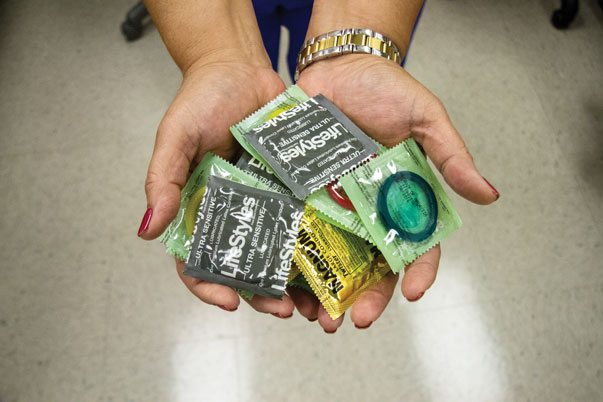By: Carolina Nieto
Sex education should be taught at an early age because we, as Latinas, come from a culture and generation where many of us are not taught the consequences of having sex.
By sex education I mean a wide range of programs that aim to impart detailed information regarding sex to school age children.
Elementary schools show you a preview of human development, typically in sixth grade. After that you are not taught any other type of sex education or family planning.
Sex is not a topic that kids are likely to discuss at home with parents.
Many parents aren’t comfortable having the discussion, and deflect the responsibility to the media and peers.
This is a dangerous hit-and-miss method leading to disastrous mistakes.
The Latino community tends to suffer from overpopulation. As a group, U.S. birth rates for ages 15-19 in 2010 was highest — about 56 per 1,000 for Latina teenagers, according to the Centers for Disease Control and Prevention.
Because of the struggle to work and feed a family of four or five, Latino families often find little time to talk about sex. Therefore, many of us are not taught the outcome, or its pros and cons.
Adding to the problem, girls start maturing faster while boys lag behind and still want to play with toys.
When girls enter high school they want to date older boys and like attention from upper classmen. But young women are gullible and can be manipulated, so unprotected sex is common with one or both partners unaware or in denial.
Sexually transmitted diseases can be deadly if not treated and in many cases females are not aware of the symptoms.
More and more teens are experimenting with sex and are contracting STDs, becoming pregnant and in some cases having abortions.
In many cases, a teen drops out of school, ending her education to take care of her baby. In the U.S. more than 750,000 girls ages 15-19 become pregnant every year. More than 80 percent of these are unintended pregnancies.
Annually, 10 million STDs are contracted by young people ages 15 to 24.
Studies show that teens who receive a comprehensive sex education are about 50 percent less likely to have an unintended pregnancy than those who do not receive sex education.
Some may think abstinence is equal to sex education. Virginity pledges are promises to abstain from sexual intercourse until marriage.
Unfortunately, studies show that pledgers are just as likely as non-pledgers to contract STDs and less likely to use contraception if they do become sexually active.
Emergency contraception and comprehensive sex education have proven to reduce the rate of unintended pregnancy. It is estimated that emergency contraception prevented 51,000 abortions in 2000, according to the Guttmacher Institute.
Parents can help support sex education in schools. Studies show that most parents of junior high and high school students believe it is somewhat or very important for sex education to be included in the curriculum, with the majority agreeing that HIV/AIDS is an appropriate topic for sex education.
For awareness of these life changing issues, and since Latino parents often avoid the topic, schools should step in and educate all students — especially Latinas.










